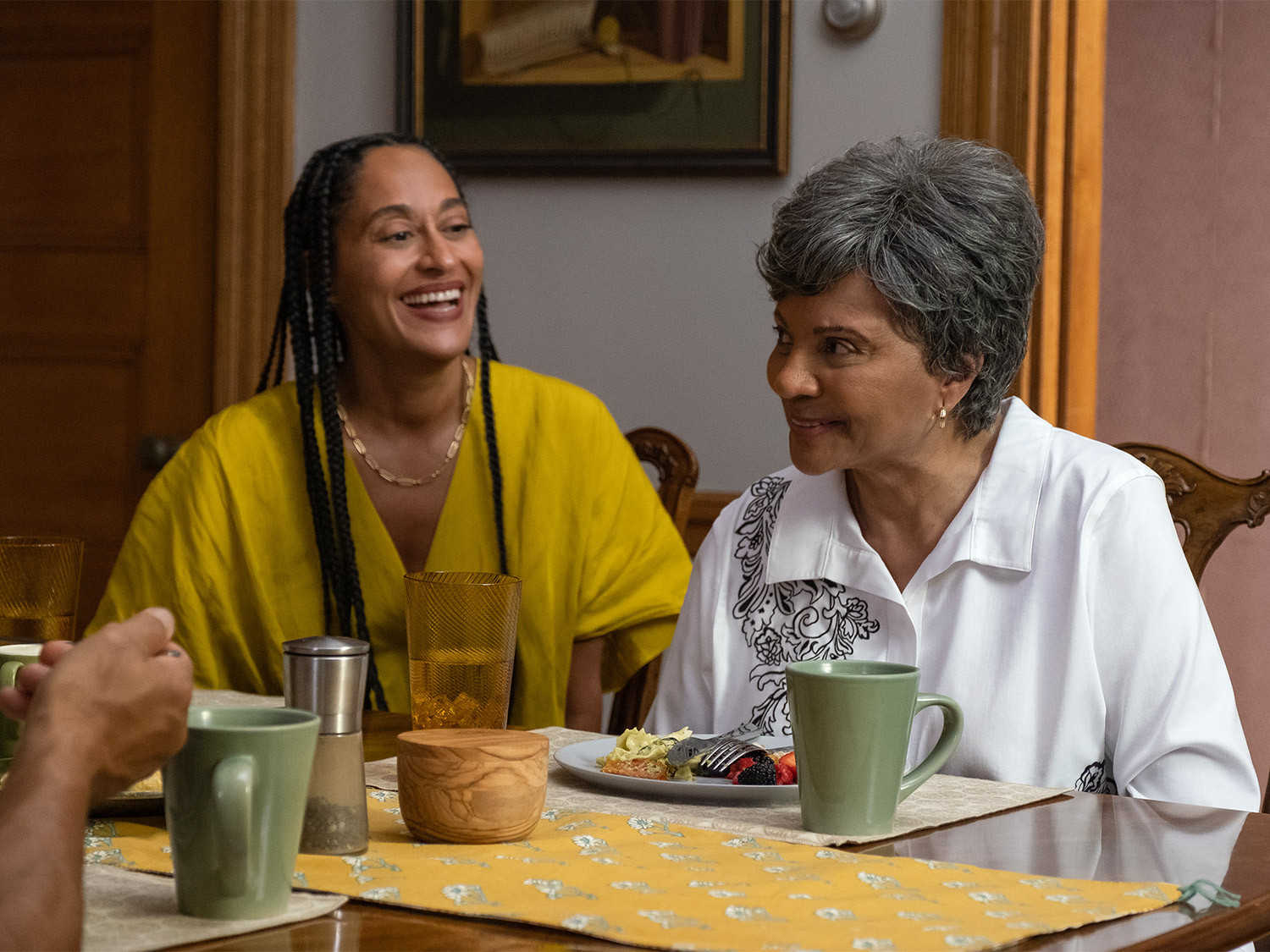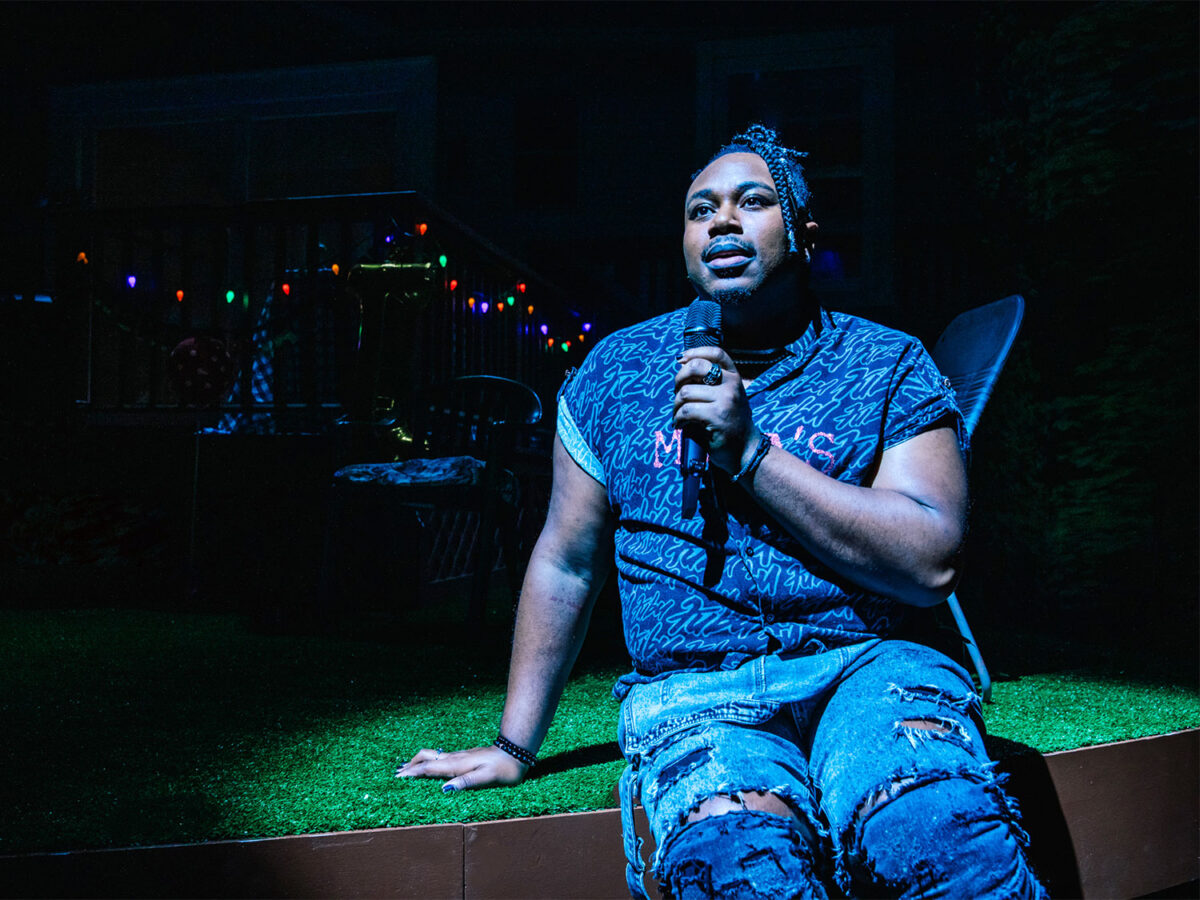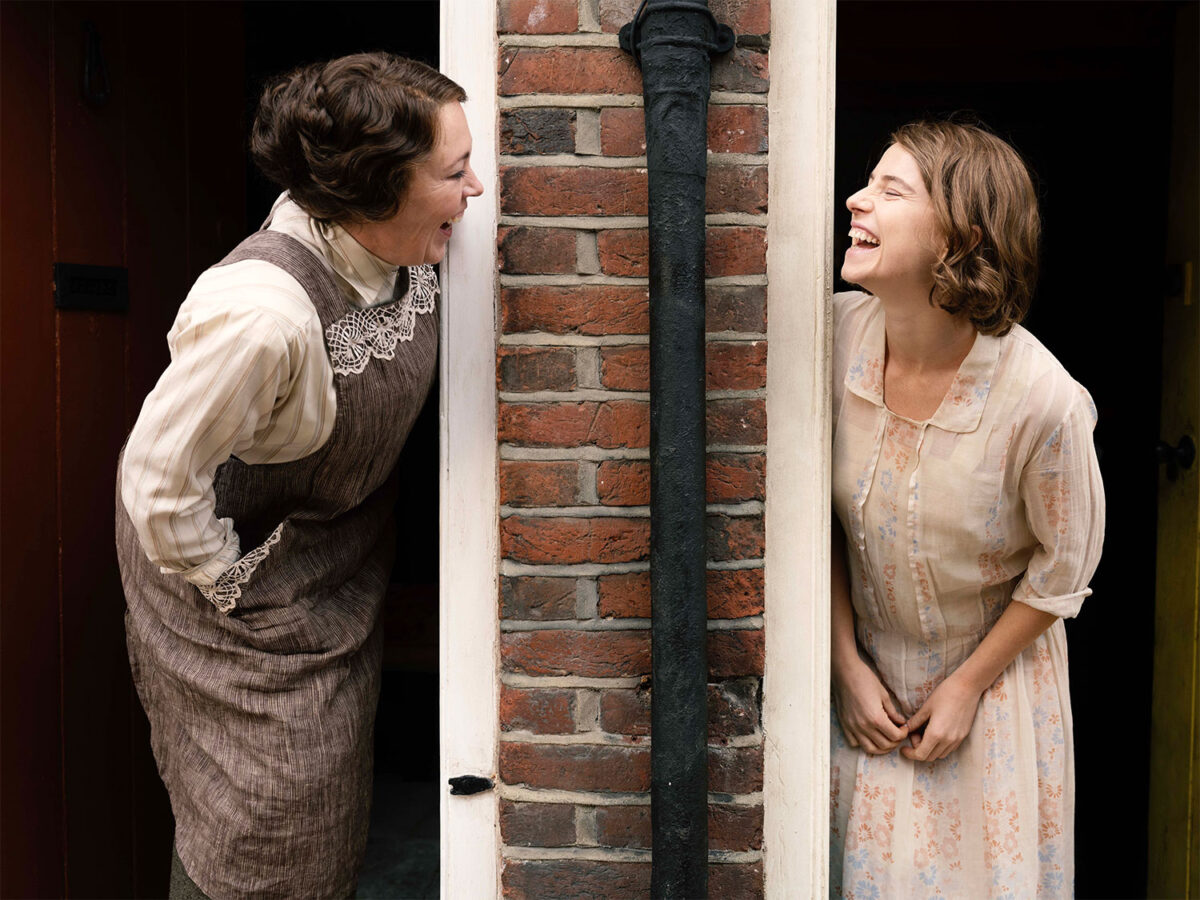Cord Jefferson, an Emmy Award-winning television writer, has made a stunning feature debut as the writer/director of “American Fiction.” Adapted from Percival Everett’s novel “Erasure,” “American Fiction” tells a story of Black identity from many different, and always ironically funny, points of view. Couched as the story of Thelonious (“Monk”) Ellison, it is, most broadly, a tale of expectations.
We first meet Monk, a Black literature professor, no doubt the only one, at a small Los Angeles private college where he’s fruitlessly teaching a seminar to an elite, primarily white (obviously) group of students, well-versed in the woke politics of today. The topic? Flannery O’Connor and her controversial short story entitled “The Artificial N****r.” A white student in the class objects strenuously to the topic and especially the title of the book. It is a trigger for her. She sees no reasonable explanation for why she should have to look at or say that word. As the Black Professor Ellison expresses it, “If I can get over it, so can you.” Out of class she storms and into the frying pan goes Ellison, called on the carpet by his chair and two other members of his department. Their reasoning for making him take a forced leave of absence ranged from political correctness to jealousy over his national reputation as a novelist (who hasn’t published in years). Go to the Boston Festival of Books, the chair says, participate, visit family and think over the ways to repent for sins, real and imagined. The Festival is a disaster. His panel is sparsely attended because everyone else is at Sintara Golden’s talk about her current bestseller, “We’s Lives in Da Ghetto.” Particularly galling is the fact that one of the reasons his agent is having such a hard time selling his books is because they aren’t “black enough.” Not black enough? It’s a book written by a Black man. Why doesn’t that make it a Black book? But hearing Sintara Golden read from her “Black” book, his blood starts to boil. Is that how people see the Black experience? Ghetto, drugs, poverty, violence, hopelessness, and, worst of all, really bad conversational speech and grammar?
Black experience? He’ll show them the Black experience! And he sits down to write a Black book to end all Black books with every stereotype known (and some that aren’t) written as poorly as an entry to the Bad Hemingway Contest (aka the International Imitation Hemingway Competition) whose motto followed Hemingway’s own assessment “The step up from writing parodies is writing on the wall above the urinal.” Satisfied with the level of irredeemable rotten prose that he’s composed about a drug dealer wanted by the FBI for a murder he may or may not have committed, he submits it to his agent who is appalled. If publishers rejected his last, well-written and thoughtful tome, then they should love this one Ellison posits sarcastically. Send it off pseudonymously, he insists to the agent. This book is the antithesis of true Black life and it will be rejected post haste, or at least that’s what he and his agent believe. And that’s the point. Surely someone will see this for the stereotypic, poorly conceived, badly written schlock that it is. The title? “My Pafology.” The submitted author? Stagg R. Leigh. How will anyone miss the horrendous spelling and hilariously undisguised name? (If you don’t know the ballad of Stagger Lee, look it up, but to give you an idea of this barroom brawl: “Stagger Lee went to the barroom and he stood across the barroom door. He said, nobody move and he pulled his Forty-four.”)
As the book is making its way to publishers’ desks, he’s on his way for a reunion with his family, something almost as painful as writing trash. Monk has been conspicuously absent from all things Ellison for years. The Ellisons are an accomplished lot, a stereotype in their own way. Father was a gynecologist, sister Lisa followed in his footsteps and brother Clifford is a plastic surgeon living in Phoenix. The American dream visible on the surface covers a more than typical family drama. Mother, Agnes, is in the early stages of dementia and her care has fallen on Lisa, the only one living in town. She’s recently divorced and had to sacrifice half her assets and half her practice in the settlement. Resources are slim and Monk’s arrival is propitious. Clifford’s life has recently blown up as well. His wife caught him in bed with another man and has taken everything including the kids and left him broke. He’ll not be donating anything to the cause. Of course, there are the longstanding resentments. Monk was their father’s favorite; their father was a philanderer who neglected his wife; Agnes is in denial; and Clifford dabbles in any drug he can sniff up his nose, and the rent boys at his beck and call. In a telling exchange, Clifford wishes that he had come out to his father. Surprised, Monk states that their father would never have approved. Yes, he knows that, but at least his father would have rejected him for who he really was rather than just rejecting him for who he thought he was.

Photos by Claire Folger courtesy of Orion Pictures
And then the news arrives that really upends Monk’s life. A top publisher is offering an obscene amount of money as an advance for this book of “The True Black Experience” and they’d really like to meet Mr. Leigh. Horrified, Monk’s first reaction is to refuse the money and bury the book. His agent, however, sees all the advantages —the money far outweighs the lie. Besides, won’t he accomplish his purpose by pulling the wool over everyone’s eyes; and then there’s the money. Money, a refrain that bears repeating. Ellison, a more than principled man, something that he has always taken to extremes, is horrified; but then there’s the money and his mother’s care will be expensive. Perhaps there’s a way to moralize this immoral situation. And he does, but always looking for the way out.
As is always the case, Hollywood comes calling in the form of exploitation producer Wiley, he of the lowest common denominator, offering an even more obscene amount of money. Bit by bit, piece by piece, Monk’s life becomes more complicated by the obvious hypocrisy of accepting money for something that was meant as a thumb to the nose. Never a man open with his feelings, he begins to close in on himself ever so much more, something that doesn’t bode well for a new romantic relationship. And as the book, rushed to print, becomes a bestseller he is positively despondent. But more complications are yet to come and that is for me to know and you to find out.
Everything in this movie, a parody, even if so many things weren’t true, relies on the real to make the phantasmagorical plausible. So much of the exaggeration is just that—a stretching of what can and does happen every day. Wouldn’t a publisher see beyond the hyperbole? Not if they smell money. And there it is again…Money. Hollywood does offer obscene sums for options, perhaps not that much but again, this is all hyperbole. And all is grounded on the background of a normal family, normal that is if the kids were all M.D.s or Ph.D.s with a beautiful home in Boston and a summer “cottage” along the Massachusetts shore. Sibling rivalry, dementia, academics, professional rivalry, they happen to everyone, so it is to Jefferson’s credit that he is able to present his thesis of invisibility or, more precisely, offensive expectation within a family drama with characters far more fleshed out than the media types he satirizes. Everyone, down to the publisher’s assistant, is pitch-perfect and contributes to the belly laughs and the sadness that will be felt almost simultaneously when watching this film. Yes, it’s all very exaggerated, but I warrant if you asked any person of color, much of this will ring true. I hope you can see the truth in it as well. Although I haven’t read the underlying work, it is a world that Percival Everett, a Distinguished Professor at USC in the English department, would have known quite well.
In what are called small but pivotal roles you have the formidable Keith David, a figure of Monk’s imagination who embodies one of the characters in his horrible novel. Issa Rae plays Sintara Golden with the serious demeanor of someone who has rationalized her exploitative writing as having been well-researched, as though that is enough of an excuse to sell one’s soul for market profits. Adam Brody is the Hollywood producer who is a true aficionado of schlock and knows a winner when he sees one. In many ways, he is the link between what is real in Monk’s eyes and what is not. John Ortiz plays Monk’s agent with a mix of indignation and horror that shows that there may not be such a wide gulf between art and selling out as he had previously convinced himself. The always terrific and too underused Miriam Shor has a field day as the publisher who, with a straight face, extols the virtues of “My Pafology” as a work of art, while blinded by the color green (of money). She is nothing short of hilarious as she interacts on the phone with a horrified Monk, disguising himself poorly as Ghetto.
Members of the family play like the royalty they are. Tracee Ellis Ross is sister Lisa, compassionate and angry at the same time. She, like everyone else in the family, hears what she wants to hear and it’s never what Monk is saying. Leslie Uggams, bringing star power from a different generation, is mother Agnes, slipping in and out of cognition so realistically I sometimes thought I was seeing my own mother. And lucky is the film that is graced with the presence of Sterling K. Brown, who can envelop any role he’s given. Here he is the complicated brother, Clifford, who is lost to the abandon of what he thinks is his true self, a gay man who needs no boundaries. But he does, and it is this confusion that brings life to Brown’s performance.
Jeffrey Wright! His name should be in lights because he is a true star, both a Tony and Emmy winner. His Thelonious “Monk” Ellison is a fully developed, complex individual who holds himself apart, thinks he knows the answers (most of which he does), and is an island. Wright’s Monk is prickly, hypocritical and real. He’s tired of not being seen but hides himself so that he can’t be. He works on a hypothetical planet where he doesn’t have to be the one who’s always trying harder than everyone else. He is the Black man who is always accused of not being Black enough when he knows that there is no such thing. He is a man; he is Black. That is not his definition. I could watch Jeffrey Wright read the phone book and he could do it soundlessly and still enrapture me. The mere fact that his character displays no sense of humor is humorous in itself. Whether the role is large or small, your attention will always be drawn to him. Here, finally, he is the lead of an ensemble with a script that is worthy of his talents.
Now playing at the AMC Century City 15, the AMC Broadway 4, Santa Monica 7 and Marina 6.
Neely Swanson spent most of her professional career in the television industry, almost all of it working for David E. Kelley. In her last full-time position as Executive Vice President of Development, she reviewed writer submissions and targeted content for adaptation. As she has often said, she did book reports for a living. For several years she was a freelance writer for “Written By,” the magazine of the WGA West, and was adjunct faculty at USC in the writing division of the School of Cinematic Arts. Neely has been writing film and television reviews for the “Easy Reader” for more than 10 years. Her past reviews can be read on Rotten Tomatoes where she is a tomato-approved critic.







